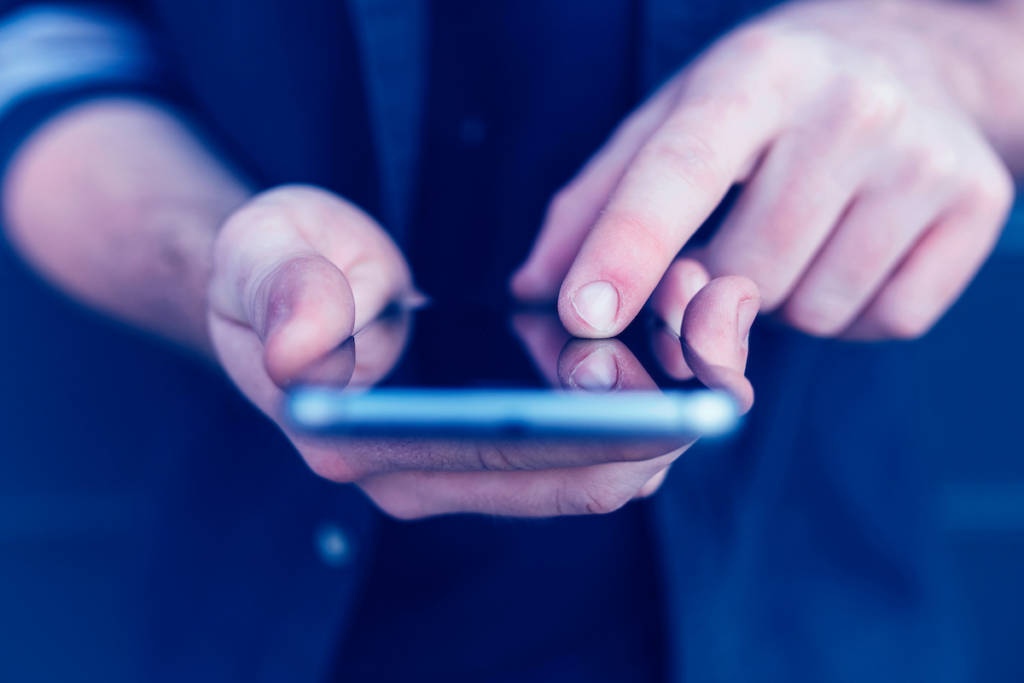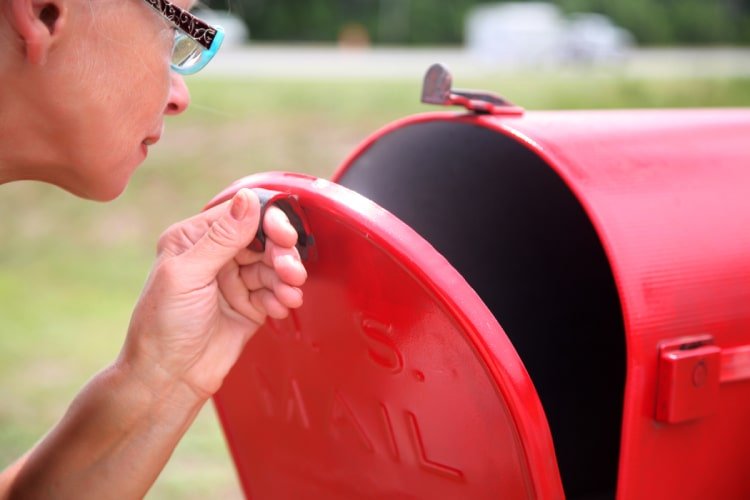ACI is lucky to count many talented millennials among our ‘OneACI’ workforce. And I’ve been able to cajole (I mean…well, I guess I do mean cajole) four of them into a series of discussions that I’ve aptly (or not) titled ‘Millennial Musings’. This ongoing series will focus on various aspects of millennials (from how they purchase to what they use to make purchases, and more). My four millennials (last names withheld just because) include Mark and Paul, wily veterans at the older end of this demographic, and Bobby and Kristine, two of our amazing interns who are seniors in college. Mark and Bobby are based in the Northeast while Paul and Kristine are based in the Silicon Prairie (aka: the Midwest).
Our inaugural musing tackles a number of broader topics including banking, breaches, loans and the elusive checkbook. And with that, let’s kickoff our roundtable, complete with some surprising responses (at least surprising to this Gen-X scribe).
How often do you check your bank balances?
Kristine (who uses a national FI): on average, I check 1-2 times per week. During the pay period, more regularly and that’s because I’m paying bills. I don’t pay bills online, rather, I go to the ATM (the ATM is not dead!) and withdraw cash. I check my accounts online or via my bank’s mobile app.
Bobby (who uses a national FI): I also check 1-2 times per week and more during the pay period. If I do any big spends, I check my balances immediately thereafter on the damage done to my account. I check my balances through Mint.
Paul (who uses a small community bank): I check 4-5 times per month when I expect a big payment to go in/out—to ensure that a bill pay has been made.
Mark (who uses a national FI): I check my balances daily, though if a payment is expected to come in or I have a bunch of bills going out, it may be twice per day. I use Mint as my primary point for this. If something is missing, I go to my FI’s app.
How many FI relationships do you have, i.e. credit, loans (student/home etc.), checking, savings, 401k, IRA, brokerage, etc.)
Kristine: I have checking and savings accounts, 2 credit cards and 1 debit card, 401k, education fund used for tuition (likely opened when I was born—this account is now my responsibility—changed from my mom to me when I turned 21), CD, no student loans.
Bobby: I have a combination credit/debit card. I had a checking and savings account, but consolidated to a checking account due to monthly fees levied by my bank on more than 1 account, 401k. I have student loans that my parents are managing.
Paul: I have a mortgage, IRA, 401K, 2 checking accounts, 2 savings accounts (1 with the same checking), 2 credit cards (1 with the same checking) and an auto loan.
Mark: I have 3 checking accounts, 2 brokerage (one is for ESPP), 401k, 4 personal credit cards, 1 work credit card, 1 for my student loan and 1 mortgage. My student loan and mortgage are not at banks where I have deposits. 2 of the 4 credit cards are with banks where I deposit, but neither is my primary bank.
Mobile payments: have you made ‘em, and if so where and with what apps?
Kristine: I have not made mobile payments; I never felt the need to go this route. Only one of my friends dabbles a little in mobile payments, but the rest don’t. Being in the Midwest, I think we’re late to get technology. Also, all students are given a prepaid card to make purchases (food, bookstore, etc.).
Bobby: I have the Mint app and BofA apps. I’ve transferred money via mobile app and have dabbled in P2P (via BofA). I’ve used PayPal a number of times and many of my friends use Venmo. I’m from the South and it seems like a lot more people in the Northeast/New England use mobile (side note: perhaps a reflection of the demographic—many retirees in the South, in this case the Gulf Coast of Florida). On our campus, we had a prepaid card, though this year our ID card is also a debit/credit card offered through one of the major FI’s. The other side of the card is a prepaid card that’s also NFC-enabled, as is our campus. (side note: when I was in college, we used a crappy ID card to gain access to a crappy dining hall where we ate crappy food…and we liked it!)
Paul: I’ve made them in-app for AMEX as well as ApplePay and RDC with my community bank. I actually switched banks a few years ago after my primary checking account did not offer mobile in any form
Mark: Yup, I make them almost daily. I am a regular at Dunkin Donuts and Starbucks. (side note: Mark likes coffee…a lot)
How do you feel about the semi-recent big breaches that have made headlines? What are your feelings? Are you apprehensive about using them, making purchases with them?
Kristine: After the first 2 big breaches, I was leery of paying in-store via credit card. I actually used cash the first couple of times I shopped. But after 1-2 months tops, I opted again for my card as it was more convenient than paying with cash, which I needed to get from an ATM. I was never uncomfortable about using my card at other stores that we’re impacted by breach. I trust my bank—they’re quick to inform me on questionable purchases, especially on my credit card.
Bobby: Although I initially felt inconvenienced, I didn’t think this would be burdensome. My sister was effected by the Target breach, but they sent her a new card and she’s a happy shopper. I’m not apprehensive.
Mark: It’s one of those situations in which I care from an industry perspective, but personally feel unaffected. I called and got replacement cards for the Home Depot breach (wasn’t impacted by Target). But either way, if a fraudulent charge occurred it wouldn’t be my problem.
Paul: I was impacted by the Target data breach and again recently by my bank’s processor. In the second event, they would not name the merchant, which I found frustrating. My wife, who is not in payments, stopped shopping at Target for a few weeks, but then went back due to the convenient location and 5% Red card discount.
Do you have student loans?
Kristine: No, thanks to a lot of hard work and countless jobs.
Bobby: My parents are paying off my loans as a graduation gift…and I’m thanking them profusely!!!! I’m also able to help offset tuition costs by working a resident assistant and of course as an intern!
Paul: I don’t, but my better half does…just a few more years to go! My loans had a super high rate in the States, as I was a foreigner prime +7 or something crazy. I was very happy to pay them off.
Mark: I’m still paying mine off 9 years later! I am now funding a 529 for my one-year-old and paying off what’s left of my loans (less than a year left to work that off!)
Are you familiar with ‘overdraft’? If yes, have you experienced ‘overdraft’?
Kristine: I’m familiar, but have never experienced overdraft. My bank has a process in place that automatically prevents this from happening (depending on how much/little is in my checking account). I was introduced to this option at age 14 when I opened my checking account.
Bobby: I experienced overdraft in high school. I think I bought a sub (or grinder as some call it). What should have been a $2 deduction ended up costing $40 due to the overdraft charge. One of my friends has a bank with overdraft protection—it’s a great option.
Paul: Overdraft in England for students is free. It’s essentially a tool that banks use to attract the next generation of profitable customers. I had an overdraft limit equivalent to $1,000 with no penalties. Once I got to -$1,000, I could not transact and would just be declined. When I moved to the US as a student, I also had an overdraft and I quickly learned that overdraft here is completely different and comes with that unpleasant fee.
Mark: I have been hit a few times with overdraft and they were expensive mistakes! I have a whole slew of thoughts on overdraft (side note: a blog to come!)
Have you ever written a check? Do you currently have a checkbook?
Kristine: I have written a check a couple times. I only write them for tuition, amongst a few other things. I do not own a checkbook. If I need to write a check, I will go to my local branch and ask them to print off a sheet of checks for me. They run $4/sheet, or free, if the tellers are in a good mood.
Bobby: Yes and yes. I have had a checkbook for as long as I’ve had a bank account (which I believed I opened back in 2nd grade with some birthday money I had received). Though I grew up watching my parents write checks as their primary payment method, that is, until they switched to credit cards around the millennium, I have only written a handful of checks. The most recent series of checks I have written were used to pay rent at my sublet this past summer.
Paul: Yes to both. My landscaper only accepts cash or check. We pay baby sitters via online bill pay through our bank, however if it’s a one-off sitter, we sometimes pay via gmail or paypal…or check if we don’t have cash, and frequently check is the chosen option. There seems to be a hesitancy on the part of these folks to try new payment options.
Mark: I have a checkbook and do write one check per month to pay my daughter’s daycare; they don’t take card or I would have just set up auto payment. I don’t have a check book, just a box of checks. My daughter will have to be in daycare for another couple hundred months for me to run out!
Some conclusions
It’s amazing how advanced this generation is when it comes to payments and banking. I was particularly surprised by how mature both Bobby and Kristine—college seniors—are when it comes to overall financial intelligence and wherewithal. I was also surprised by the responses on mobile, in terms of both the differences based on region and age (pundits would expect Bobby and Kristine to be tied to their mobile devices 24/7). If some of these advancements were available back when this scribe was in college, I think there’d be more accountability in terms of repaying friends for beer money. Ahh, the good ol’ days.



